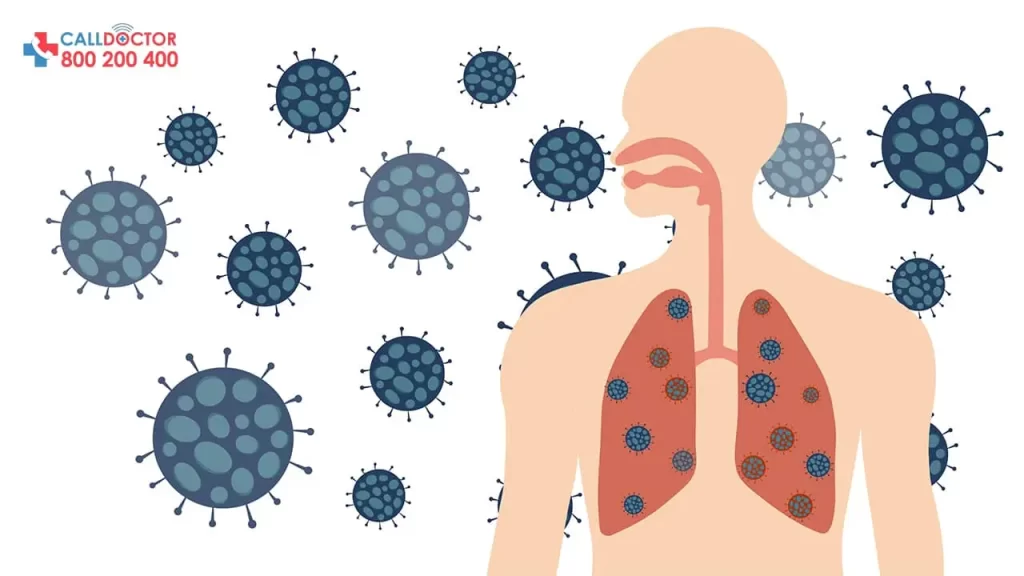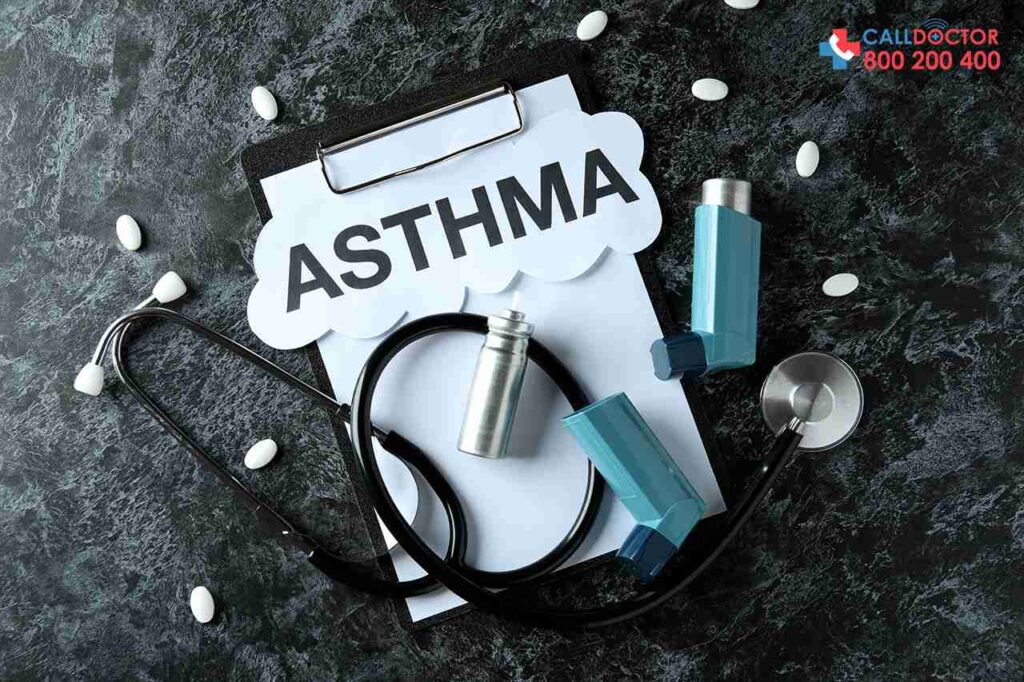Let’s talk about its Symptoms, Causes, Prevention, and Treatment
Breathing freely in the fresh air is a beautiful feeling, but many patients suffer from respiratory disorders, which can be acute or chronic, such as Asthma. But what exactly is an asthma attack? And is there any permanent treatment for asthma?
When the passageways in your lungs are frequently enlarged or inflamed, maybe you have asthma. Moreover, the inflammation decreases the amount of room available for air to enter and exit the lungs, and the muscles surrounding your airways can also constrict, making breathing more difficult. An asthma flare-up, asthma episode, or “attack” usually occurs when something happens in the environment, such as a weather change or even a strong perfume can be a common trigger.

Causes and Symptoms
As mentioned earlier, asthmatics patients experience symptoms when their airways become constricted. So, asthma is an inflammatory condition that impacts the lungs, difficulty breathing, and regular physical activity becomes incredibly hard, if not impossible. Although it is one of the most common chronic disorders in children, it can also affect adults. Asthma can be identified by the following symptoms:
- Heavy breathing
- Wheezing
- Tightness of the chest
- Coughing
- Fatigue
- Frequent infections

The symptoms of asthma occur at night or early in the morning. Though if you have asthma, you can experience it all of the time, but attacks only happen when your lungs are bothered by something.
Multiple irritants in the air, such as smoking, chemical fumes, and strong scents can trigger the breathing disorder. Or indoor allergies, such as animal dander, dust particles, insects, pollens from flowers or trees, and weeds can also add to the discomfort. Though finding a permanent treatment for asthma might be difficult, the disease can be controlled by taking necessary precautionary measures.
Types of Asthma
Studies have proved that asthma tends to run in families. Family history is one factor that is often overlooked. Furthermore, you’re more inclined to acquire asthma if a close family member has it or virus outbreaks in the past. People who have had severe viral infections as a kid, such as respiratory syncytial virus infection (RSV), are at a higher risk of developing the disease.
The permanent treatment for asthma is impossible, but it can be effectively managed with modern therapies and prevention. For example, genetic, environmental, and industrial variables have all been related to the development of the disease.
Medical practitioners classify asthma into four kinds, ranging from intermittent to severe. The severity of the Asthma attacks indicates which type you have. These are a few examples:
- Intermittent asthma that flares up now and then
- Asthma that is mild and persistent
- Moderately chronic asthma
- Severe and recurrent asthma
Some types of asthma are well known as:
1. Non-Allergic Asthma
Non-allergic asthma is commonly triggered by drugs, extremely hot or freezing weather, and environmental changes. Similarly, using a lot of medication, stress and smoking can trigger asthma too. There is no specific cause of non-allergic asthma and no permanent treatment except prevention.
2. Allergic Asthma
Because the immune response perceives the allergens as dangerous, allergic asthma develops. When a person with allergy-induced asthma comes into touch with a trigger material, the body reacts by generating immunoglobulin E antibodies. Immunoglobulin E stimulates immune cells to release substances that promote pulmonary inflammation.
3. Cough variant Asthma
The predominant symptom of cough-variant Asthma is intense coughing. Coughing can be caused by various things, including persistent rhinitis, sinusitis, gastroesophageal reflux disease (GERD), or heartburn. Moreover, coughing due to sinus is prevalent in asthmatics. If you have a chronic cough, see your doctor. In addition, specific asthma tests, such as lung function tests LFT, can help you determine how well your lungs perform.

Prevention and Treatments
What is the treatment for Asthma and is getting permanent treatment for Asthma is difficult? The moderate kind of asthma generally only necessitates using a rescue inhaler. Because your symptoms only happen once in a while, you don’t need to take medication every day. On the other hand, your prescription needs will be determined by the severity of your attacks when they do happen.
It’s more difficult to pinpoint your asthma triggers when you can’t link them to a specific allergy, such as dog fur or house dust. That’s why it’s essential to consult with an allergist to figure out what’s causing your asthma and develop a treatment strategy. Some simple preventions can save you from asthma attacks, such as:
- Vaccinate yourself against influenza and pneumonia because Flu and pneumonia can provoke asthma flare-ups if you aren’t updated on your vaccines.
- You should observe your breathing through different symptoms such as minor coughing, wheezing, or shortness of breath.
- You should discover what triggers or aggravates your Asthma and take action to prevent them. So, asthma triggers should be identified and avoided at all costs.
- Asthma episodes can be triggered by various environmental allergens and irritants, including pollen, mold, and air pollution.
- Take your medicine exactly as directed. If your asthma appears to be better, don’t change your medication without consulting your physician.
- Have a healthy lifestyle, eat a good diet, and avoid stress.
- Remember your asthma is not under control if you have to rely on your quick-relief inhaler, such as albuterol. Consult your physician from time to time.
Never too early, never too late
Let’s have a healthy life without having any fear. A healthy lifestyle is essential, and if you require home care or want to treat your asthma, Call Doctor is here to assist you. We know that there is no permanent treatment for asthma, but Call Doctor provides you with the best medication and services available 24 hours a day, seven days a week. You can reach out to us at any time and receive our expert and high-quality medical treatment.




